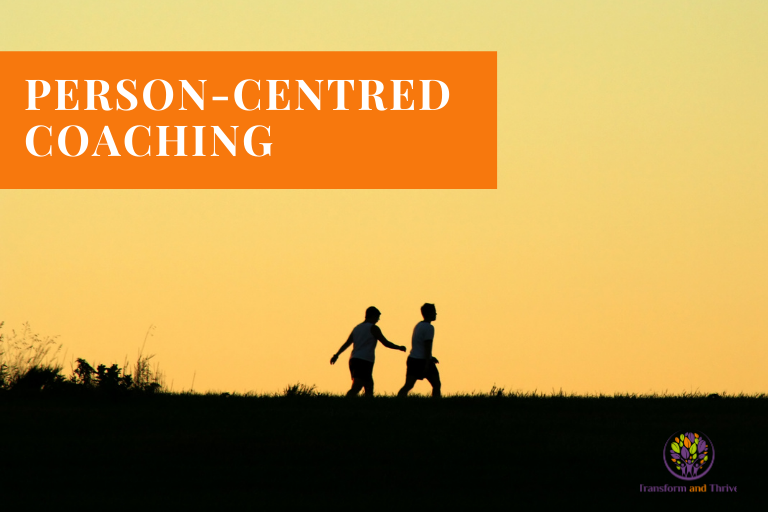Person-centred coaching
Do you ever experience those times where things just simply flow for you? Your work gets done and it feels natural. That is how person-centred coaching is for me. It’s like breathing; I barely think about it. So, when a colleague remarked on this as a unique coaching style, I stopped in my tracks.
Surely every coach is person-centred?
In practice, what does it mean to be person-centred?
Person-centred approaches in a therapeutic context were first described by Carl Rogers in the 1960s. What I understand by Rogers’ theory is a very client centric, individualistic and non-directive stance where the client leads the way and the counsellor or therapist (metaphorically) walks alongside the client.
It is easy to see how this approach plays out in therapy when we consider individual differences in our mental or emotional health, and particularly when addressing trauma.
But what about leadership development?
Surely leaders and managers encounter the same workplace situations and challenges all the time, and therefore a coaching intervention becomes straightforward, even formulaic?
There are of course important differences between a therapeutic relationship with the client and a coaching relationship, although this isn’t the space to outline those thoughts.
Nevertheless, people show up with their whole selves to the coaching space and in the workplace so why would a coach be anything other than person-centred?
To be person-centred means that even after nearly 1000 hours of coaching, I aim to show up to my clients as if for the first time and with a ‘beginners mind’; no expectations. As soon as I feel tempted to kick back and allow the session to unfold according to a theoretical coaching model, things start to unravel for the client and indeed for me. Don’t get me wrong, coaching models have their place and I relied heavily on them in my early days when I was wearing my coaching stabilisers. Experience and continued formal and informal reflection has helped me settle into a less restricted style of coaching, one where an invisible scaffolding of models and theories, as well as an acceptance that we are all wildly different in the way we experience our world.
Why do coaches often rely on a generic route on which to take their clients?
The human brain loves to categorise, simplify and rationalise things. These mental shortcuts enable us to retain vital energy for other more complex brain-based tasks like decision making and problem solving. And just like everyone else, I need to make a conscious and deliberate effort to acknowledge existing assumptions and beliefs before gently setting them down, like a bag of heavy shopping on the seat beside me. This is especially true and important in the coaching space.
So, I’m not a coach with a pre-determined agenda, a best practise model or any other coaching ‘mincing machine’ where I put my clients in at one end and they come out ‘done’, solved or fixed at the other. Instead, I start wherever the client lands on the day we meet, and together we make decisions about their coaching journey; decisions that are informed by their unique thoughts, feelings and behaviours.
Coaching is a privilege
I never take for granted the fascinating and exhilarating experience of sharing the thoughts feelings and aspirations of the client sitting in front of me or walking beside me. It is a complete privilege to be invited into their world, and to bear witness to the progress they make towards the career and life they want to live. Thank you to every client who has trusted me to work alongside me over the past 13 years.
I work hard to notice when I slip back into generic definitions, thoughts and beliefs about what is going on for my clients. We can all fall foul of these mind traps This is why I consistently and passionately return to the question; what more do you think or feel or want to say? Because more often than not the client will have plenty to share.
To be person-centred is to believe the clients know what is best for them. It is not good enough for coaches to say this on their website or to intellectualise it. We must feel it in our hearts and embody it in our actions.
So what? Why does this matter to you?
If you are buying coaching services to boost the performance of your leaders and managers, ensuring they excel in the role you pay them for, it is vital you consider how person-centred coaching makes a difference. It isn’t a one-size-fits-all, off the shelf approach.
I work with individuals to empower them by drawing out their innate strengths and giving them the tools to be the best they can be. I don’t purport to fix or solve your employee challenges. Instead, when you work with me, you will be working with a coach who genuinely sees your employees as you do; unique, imperfect human beings with infinite capacity to be amazing at their work. I will always treat them as such. They will never be just another coaching client.




